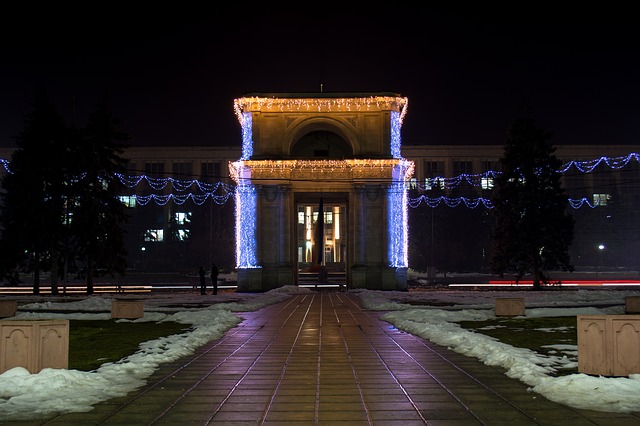
The Future of Journalism – Happy 20th Birthday to EJC!
Journalism is still undervalued so where does it leave us? The Economic model of journalism and act of journalism itself are now growing separate- so what values of journalism matter to us? News consumption is increasing however the tech companies capture 68 % of all US ads. Journalism education is at its own critical moment.
We need to innovate. We need to be aware of disruption and disruptive innovation. The Internet will and is changing education all over various industries (economic challenges, academic challenges). What is the value of journalism degree? Survey over 1,000 participants – its results show a gap between academia and other groups of a journalist which could be perceived as a problem but is also a challenge. (A third of academic professors agreed that journalistic education is not keeping up with the changes in the industry.)
“Sometimes the industry itself is not keeping up with the changes happening in journalism!”
Tips: Innovate, create new ways of using software, teach collaborative work, connect to the whole university, expand the journalism schools as community agents.
How about our non-customers? What do they want?
Now is the time to reinvent the industry.
We need more schools not less! We are at the point where we need true educational innovation. Some will do it well and some will be left behind.
2. Josh Friedman, Oleg Shchedrov, Paul Bradshaw, Mercedes Riederer
Oleg: In Russia, people can elaborate for hrs on multimedia journalism but they cannot tell what is the story. Students need to learn technology and understand the trends.
Q: Should we forget the tech and go only theory, content expertise?
Oleg: No, they need to know this but also know how to identify new trends
Paul: There are students who spend their time on the university as if they were there on one stage of factory line whereas they need to be more flexible to keep up with tech.
Josh: The idea of telling stories and all aspects of journalistic ethics is there, but teaching people the new platforms is challenging because people who understand the new tools can go to other industries and earn more money.
Paul: He expects his students to decide how to approach the innovation.
Josh: But how will you maintain the standards?
Oleg: now we are teaching combined approach between traditional and modern news sharing.
3. Ove Joanson, Robert G Picard, Vincent Partal, Mark Johnson, Staffan Sonning
Ove: Journalism is highly overrated. I never had a problem to find a journalist who was good at journalism, but I had a problem with finding journalists who were good at anything else.
Vincent Partal – experiences of the oldest online newspaper in Europe from Catalunya.
They decided that the journalism is changing so they have to change too. They began to think about it and found out that the basics of journalism are to tell the stories, do it well and serve the community, ask the community what they really want to know. Their decision was to open every door – even offline moved their office to the city centre and opened the office to the public. Increased their activity in social media, understood that they are not only a page on FB but in many channels under the same brand. They have large screens in the newsroom to show twitter feed, they work on data intelligence, to have a live understanding of what people are reading. 35% increase in readership was noticed last year, but they also had to understand why people get involved with their brand. The idea of community to become managers at their newsroom for one day- that changed everything. Readers also identifying that something is changing, authors understood that they need to think outside of the box. Last July decided to move forward – identify relationship between their community and them via this new tool. Readers recognised the professionalism on the newsroom but newsroom also realised that readers are real people. ( name of the project ? ) it has many ways of interacting with members. Morning email update to approx 2000 community members who can react to it and navigate the newsroom to more interesting, relevant topics. Finally the money: they decided to ask people to pay via crowd funding. The wall concept and premium concept didn’t work. We decided to say- no, pay for nothing, for the concept, for your belief that media is important to you. In December we identified the daily cost as 16cents. The only motivating factor here is readers consciousness that they are contributing to maintainable of the newspaper. We learned two things. 1. You can take nothing for granted- you are not leader, just let people tell you what they want. 2. If people tell us what they want we can do a better journalism and have a better company.
Mark Johnson from The Economist – Reasons that pull journalism together.
As there is more information out thee the role of curation and providing context becomes more important. Finishability is a crucial concept here. The other good news we think that the world is getting smarter. This is the age that values intelligence more than any time before. The Economist firmly believe that people will continue paying the not for quality of news but quality of news analysis. Most of their revenue comes from subscriptions. Social media was a massive success for them to reach out and look for new readers. 10% of traffic to the main website comes from social media more importantly it’s the type of readers who would not come to the site from other, more traditional sources of advertising. They see tablets as important future for them. People have the same attention span as offline. Apps also help them reach new audience and subscribers.
Staffan:
Most pessimistic reported at Swedish radio – publicly founded radio. So what are the challenges in the new media landscape? How do you uphold ethical standards in this ever changing media landscape? In Sweden media landscape is largely self-regulating, which so far had been working really well. But what happens if the self regulating system is going to fail? Will the regulators come back and step in without clear understanding o fine media landscape? I see clear changes in ethics of news sharing in the age of new media. There are in some cases rules for printed media and other rules of online media. This has created a new and potentially damaging situation in the media. So the traditional journalists are in slippery slope when facing the competition with the new media.
Robert G Picard Oxford university Reuters Institute:
Business models of journalism was a key element of discussion but it’s wrong headed. But business models are not about how much money you get but how you generate the value to your stakeholders.
There are now so many other news providers. It has effect of advertisers too.
This big change now means we need to reconsider business model – look at the way we provide news, all the conventions we use to deliver the news and look at the conditions in which we deliver the news. If we all do it the same way we will not survive. So the news organisations have to make themselves more unique, more different, provide commentary that provides the needs of readers, at times when people want to read it not when news organisations can provide it. News organisations are not doing it really well, apart from timing. We need to start thinking not about what we need but what our readers want so that the money backs us up. The fundamental problem with journalism is the fact we do not like audiences along the way. E have bad conceptualisation of the public- the ignorant mass that we have to educate. We think we need to lead them to the right roger and turn them in proper citizens. This is a very dismissive view which makes it difficult to work with the digital media because this is not the way trust and mutual respect works online!
So what we see is the fact that those organisations that work well are the ones that respect their audiences sometimes even more that themselves.
We now suddenly faced with having to partner with people who are more specialist in topics we post than we are! We need to find a way to connect with. Them and believe that audiences will not come via one single product in one way to our content. Even under fully controlled conditions people will do whatever they want to do.
So we need to think how we are going to serve about their needs more than ours.
We need to think about how we become better part of the lives of people we are dealing with. He do we find out what is important for them and how do we serve those needs?
We have to start thinking about fighting the disconnect we have with readers.
We also need to think about the information we do not consider important but are important for the community. There are problems in how we conceptualise what is important in news
No matter what happens we will not come whack to the riches of beginning of the century but this is not actually so bad. It’s not a question of how much resources you have but HOW we spend the resources we have wisely.
Rethinking the model of news needs to be done by elevating the role of readers and the way we provide them with value.




